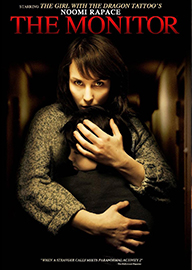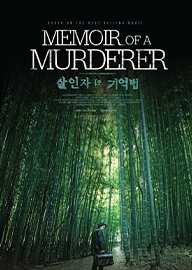Les 7 jours du talion AKA 7 Days
- 6.5
- Crime
- 2010
- 1h 55m
- PG-13
a tense New Zealand psychological thriller directed by Michael Rowe, unfolding the harrowing journey of a grieving father who kidnaps his daughter’s killer and gives himself seven days to decide between revenge and justice. Starring Shane Briant, Kevin Flood, and Tony Todd, the film explores themes of morality, grief, punishment, and redemption. Raw and unnerving, 7 Days confronts the darkest corners of human emotion, questioning whether vengeance can ever heal the wounds left by tragedy.












Comments
0Reviews
0Summery
1Please sign in to comment.
Please sign in to review.
7 Days (2010) emerges as a haunting New Zealand psychological thriller that plunges into the disturbing tension between justice and revenge, grief and healing, morality and punishment. Directed with surgical precision by Michael Rowe, the film strips away any comforting illusions of black-and-white morality, instead delivering a portrait of human suffering and the desperate, visceral choices it provokes. It is not simply a thriller that entertains with suspense; it is a drama that forces audiences to confront the darkest impulses within themselves, asking: what would you do if the justice system failed to give you closure for the worst crime imaginable? The story begins in stark tragedy, introducing us to a father whose life is shattered when his young daughter is brutally murdered. The rawness of his grief is not dramatized with melodramatic theatrics but with silence, restraint, and hollow-eyed numbness. This father, played with chilling depth by Shane Briant, embodies a man whose very identity has been ripped away, leaving behind a hollow shell of rage and sorrow. From the very first act, the film makes clear that its focus will not be on the legal proceedings or external world, but on the raw psychological battlefield of a man who has lost everything.
When the alleged killer of his daughter is captured by authorities, there is no sense of triumph or relief. Instead, the father sees only a broken system, one that cannot possibly deliver justice equal to the horror inflicted upon his child. The courts, lawyers, and judges are depicted as distant, sterile, and procedural, existing in a reality that cannot comprehend the magnitude of his suffering. It is within this gap between institutional justice and personal anguish that the story of 7 Days truly begins. Driven by this sense of helplessness and fury, the father kidnaps his daughter’s killer, a decision that marks the moral fracture at the center of the narrative. He imprisons the man in a makeshift chamber, giving himself precisely seven days to determine the fate of the one who has destroyed his life. The ticking clock structure introduces relentless tension; each passing day represents not just the countdown to potential execution, but the gradual unraveling of a man consumed by grief, torn between his desire for revenge and the haunting possibility that killing the murderer will not heal his pain.
The kidnapper-prisoner relationship becomes the film’s crucible. The scenes within the chamber are filmed with claustrophobic intensity, the confined space mirroring the father’s emotional entrapment. Kevin Flood, playing the accused killer, delivers a performance that deliberately blurs moral certainties. Is he truly guilty? Is he remorseless? Does he deserve the violence that awaits him? The ambiguity forces the audience into the same torment as the father, questioning the line between justice and cruelty. Each day is structured around escalating psychological and emotional confrontations. On some days, the father lashes out in violence, seeking catharsis through punishment. On others, he hesitates, haunted by memories of his daughter, by whispers of conscience, by the realization that vengeance may only deepen his abyss. This shifting tone reflects the unstable psychology of grief itself—never linear, always spiraling between anger, sorrow, denial, and fleeting moments of reflection.
As the seven-day period progresses, the narrative evolves from an external tale of abduction into an internal battle for the father’s soul. Flashbacks to happier times with his daughter punctuate the grim present, casting unbearable shadows of innocence lost against the brutality of the chamber. The audience is reminded at every turn that the core of the film is not the prisoner’s fate, but the father’s capacity to live with himself after whatever choice he makes. By day five, the father’s obsession with revenge begins to show cracks. He grows aware that no act of torture or killing can resurrect his daughter, no amount of suffering inflicted on the murderer can restore the life stolen from him. Yet he cannot let go of the rage, the bitter hunger for retribution. The film depicts this inner conflict with minimal dialogue, relying instead on atmosphere, silence, and the physical deterioration of both men locked in their grim standoff.
The final days of the countdown bring the themes of 7 Days to their most brutal intensity. The father must confront not only his prisoner but himself. Is he willing to become a murderer in the pursuit of closure? Or does sparing the man mark an act of strength, the only way to reclaim some semblance of humanity from tragedy’s ashes? These are not questions with clean answers, and the film does not offer moral absolutes. The climax arrives on the seventh day, the moment when decision can no longer be postponed. Here, the film’s restraint pays off; instead of sensationalizing violence, it immerses the audience in unbearable tension, letting silence and stillness carry more weight than gore. The father’s choice—whether to kill or to let live—becomes less about the prisoner and more about whether he can live with the echo of his actions for the rest of his days. What makes 7 Days (2010) so powerful is its refusal to provide neat resolution. The film’s ending is deliberately ambiguous, leaving audiences unsettled, questioning their own instincts. Would revenge have satisfied? Or would it have hollowed the father further? The lack of clear closure mirrors the reality of grief itself: it cannot be solved, only endured.
Thematically, the film grapples with timeless questions of justice versus vengeance. It critiques the shortcomings of institutional systems that can feel detached from human suffering, while also warning against the corrosive effects of personal retribution. It suggests that violence, even when justified by pain, may only perpetuate cycles of suffering rather than heal them. From a cinematic standpoint, 7 Days relies on minimalism and psychological intensity rather than spectacle. Its set design emphasizes confinement, its cinematography favors shadows and stark lighting, and its pacing builds unbearable tension out of silence and hesitation rather than constant action. The performances anchor the story, with Shane Briant delivering one of the most emotionally raw portrayals of grief-driven obsession in modern thriller cinema. In the wider context of cinema, 7 Days stands alongside other revenge thrillers like Prisoners or Oldboy, but its New Zealand origins lend it a unique flavor: restrained, bleak, and grounded in realism rather than stylized theatrics. Where Hollywood might amplify spectacle, 7 Days pares everything back to raw human emotion.
Ultimately, 7 Days (2010) is a film that lingers long after the credits roll. It is not easily categorized as a simple revenge movie, because it resists the catharsis that audiences often expect. Instead, it leaves its viewers haunted, questioning, and deeply unsettled. It is a study of grief at its most corrosive, revenge at its most hollow, and the fragile line between justice and destruction.